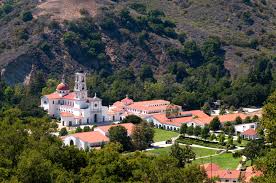 A student’s College choice is usually one of the most stressful and significant first choices of his early adulthood. And while it is important to have fun in College, that can’t be the only deciding factor in the selection process. College has to be so much more than just fun. It is responsible for taking students who are just starting to be full adults and teaching them the best way to do that. College, which comes from the Latin word collegium–meaning community, society, guild–is meant to be experienced through a partnership. Through this partnership, the student is fully guided into being. The three most important things a student should judge a college on are the College’s ability to live up to a sound mission statement, the education, and the community. In the mission statement, Colleges list what they intent on educating their students. If the mission statement matches your principles, then it will most likely be a comfortable fit for you. Getting an education will help you extent that mission statement to other areas of life by giving you the tools you need to teach through word and example the reasons you had for agreeing with those founding principles. And living in a community of positive, semi like-minded individuals will help you share your truth finding experience with others. A College’s mission statement needs to express concern in defending every true and beautiful thing. It is in the nature of a College to form young adults into responsible and intellectual people. Through helping students understand the ways of life in their four years of learning, Colleges perform their duty in forming human beings. Colleges have a duty in teaching students of the things that matter–the things which transcend youth, social class, and money. The things which make us really human and intrinsically valuable. Therefore, when a College’s mission statement expresses a distinct goal in teaching its students how the world works, it fully becomes a College in acting with the nature of a college. A College must have a challenging and well-ordered education. During my senior year of high school, I started taking basketball seriously. My confidence soared and I started receiving offers from schools. After receiving a scholarship offer to a school, I verbally accepted out of excitement. However, later in the school year, I realized that the school would not challenge me academically. I was already a decent AP student, graduating with honors, and I did not want to waste four years of my life by only being challenged physically, not mentally. I therefore decided that I needed to go to a school that would challenge me to be the best I could be at every moment. And only through pushing myself every day, I hoped I would get a little better each time. After recognizing this clear change in my expectations for College choice, I searched for a school which had a sound Mission statement and sure ways to achieve that. At the end of my search, I decided on going to a school where I had only the average or below average test scores. But that had an incredible faculty and community which I knew would help me in my growth. Finally, just like College’s Latin derivative, College needs to be done together. Through community, students are able to motivate each other to be their best. Even though class and homework are important in helping students remember facts and major themes, have a strong community is a necessity in leading students to really understand things. Through discussion, students may express their ideas from their classes and explain through their own theories. In helping others understand concepts, students inevitably expand their own grasp of the subject. And through creating a positive learning environment, students help each other form the right attitudes towards their studies and learning. A College is what students should attend and graduate as better people. They should be able to use the experiences they had in College to help explain and defend their own opinions, spreading sound ideas to the rest of the world. Many times, when students just choose a College based off of its party culture, they miss something important, something transcendent. They think that College is limited to just the four years they stay at a certain place, but don’t recognize that a College should be much more than that. Through attending a College that makes students question life to get a better understanding of life, students will inevitably carry their wisdom and new ways of approaching life with them.
0 Comments
As a college student, I think it is essential that I challenge myself by pushing myself out of my comfort level in order to learn. Last year, I was comfortable in my stable friend group, my major was clearly mapped out in my head, and I had a concrete plan for my future. This year, much has changed. I have become much more independent of my friend group, tried to branch out in meeting more people, especially in being an RA in a freshman dorm. I have integrated myself more with the basketball team, I have changed my major, and I have embraced higher expectations from my two jobs. And, although I have learned much from these challenges, I desired for a Hillsdale experience in the most holistic way. I wanted to produce something – claim something as my own. So, I signed up for two music classes: private piano lessons, and voice class. Having taken piano before, I had already known what to expect in myself. However, I really did not know if I could sing well or confidently in front of people, so taking the Beginning Voice Lesson forced me out of my comfort zone.
Throughout this semester, I have learned to incorporate my singing into the habits of daily life. In the past, I have had experience with singing. In elementary school, I took lessons with a homeschool teacher in a big group of people. In middle school, I joined my church’s middle school choir. When I listened to music with my sisters, we would all make it an event and sing-along. In addition, both my parents play the guitar, and every so often the whole family would come together to sing. Now, since I have been away from home, I have missed the joys of singing because I had not yet formed habits or groups with which to sing. After joining Beginning Voice Lesson, I have been able to see more opportunities for me to sing. Even though I have not gone out of my way to form new habits, I have been more aware of my voice and how I can incorporate sharing it in my daily life. At church, I have begun to be more conscientious of my voice and how I sing. I have been able to find more joys through singing at church because I make it a point to sound nice and confident. Also, I have attended more music events at the college because I have been more attentive to the music programs at Hillsdale. Thus, through taking Beginning Voice Lesson, I have been able to expand my horizon and experience things which I would have normally missed because I have been exposed to music. Now, my voice has given me more ways of being joyful. When it is nice and sunny outside, I love to be active and play sports outside. But when it is rainy, gloomy, or cold, I can’t really do much of that. Instead, I know I can always go to a practice room inside and sing. Singing reminds me of all of the fun times I have had with my family. Especially when I listen to and sing Indie Rock songs, I am reminded of the times I drove my siblings to the beach with the car windows rolled down, and the times when I was the DJ on one of our big family road trips. Thus, through being more aware of my voice and music, I have been able to remember the little joys I once shared with my siblings and family. Embracing my new ideal in experiencing Hillsdale in the most holistic way has helped me approach life at school with much more joy. Through singing, I have been able to remember the fun times with my loved ones, even though I will not see them for a long time. This summer, whenever I get homesick and want to think of the great times with my family, I now have a solution. I can sing the old campfire and Indie rock summer songs I used to sing with my family and remind myself of the emotions of happiness and joy and feel when I am with my family. How to be intentional in all that we doWhile I was in Spain, I learned a very important lesson. I haven’t exactly lived by this lesson every day, but it has shaped my viewpoint towards many of my activities. In Spain, the people are practical. If they work, they focus all of their attention to their work. When they relax, they generally do not worry about other things. In other words, they focus on the task and the situation at hand, and do not worry too much about future or distant things. When applied to our daily lives, this lesson of intentionality can be very beneficial.
Once we become intentional about the things we do, we find clarity. In school, I used to go to class and take notes, but not try to memorize the lessons or themes. I would put that off until test preparation. But now, I have found that if I keep my brain very active in class by trying to memorize the lessons, thinking of questions to ask, and being much more involved with the class, studying for tests becomes less stressful. I comprehend the material much better and understand each small lesson in the bigger picture of the class. Thus, through understanding the role each lesson plays in the bigger concepts, I learn the material better. To be intentional, we must keep the bigger end in mind. In class, sometimes it is hard to stay focused. But it is important to remind ourselves that we are here to learn. Doing homework, writing essays, and taking notes has been the way we have chosen to learn, but the end goal is to comprehend the material. Once we recognize that, it may be easier to understand the roles each activity plays in our steps of learning. We should try to be fully focused in the tasks at hand. When we are doing homework, we should only think about homework. When we are working out, we should focus on working out, and not with what we have to do afterwards. When we are socializing, we should focus on our relationships, and actually relax so that we are refreshed for the next thing which will come. Being intentional in everything will not just help our strivings in academics, but it will help with everything we do. It will increase the amount of energy and focus we can place in each of our commitments because we won’t feel exhausted from thinking about each little thing so much. It will also give us a peace of mind in knowing that we did the best we could with what we had. And that is probably one of the most important benefits. Most people’s harshest critics are themselves. So, once they can overcome any negative mental battles and recognize that they did the best they could in their situations, then they will be able to be free from their harsh criticisms.  This year, I decided to take a new course offered at my college, called Teaching Elementary Math. I expected that it would address each word in the title uniquely, but I hadn't expected to learn about teaching math in an imaginative, inspiring way. This past week, through our assigned readings and class lecture, I realized that math is much more based on unreal things than reality. For this reason, math needs to be taught in a different way that most people teach it now. When people think about math, they usually think about formulas, problems, and boring class lectures. They associate math with something tangible, objectively correct, and sterile. That is probably because the math which non-majors usually are exposed to is pointed towards two main purposes: 1. To teach children how to do basic arithmetic, and 2. To tangibly test schools and the ability of teachers through standardized tests. Although these two things are appealing, there is a beauty in math as a creative, abstract art, which often times gets forgotten. In math, we are forced to think of things differently. A large part of math deals with the imaginary world. In calculus II, students are asked to find the area of infinite curves rotated around axis. This sounds crazy! But there are actual, correct answers to this question. But even more on the basic level, we have to use our imagination to find more basic answers to elementary questions. Think about a triangle for a minute. How do we find it's area? Instead of thinking of the formula, or exiting out of this blog to google it, think about how we would get the area from areas of shapes similar to the triangle. Surround the triangle with a rectangle, so that the triangle is completely encaptured. The height of the rectangle is the same as the height of the triangle, and the widths and lengths also equate. Now, draw a line down the height of the triangle, and what do you have? Two boxes split down completely in the middle, making sense of our formula, 1/2bh. We had to think about math in a different way than normal, coming up with a more imaginative way to solve the problem than just regurgitating the formula and plugging away numbers. In the classroom, we discussed how to apply this different way of teaching math so that the students are engaged and challenged. My professor showed us that the best way to challenge the students is to teach math through the Socratic method, asking guiding questions so that the student ends up learning the desired material more organically instead of having it thrown to them. In this way, learning becomes slightly hidden, and the student will hopefully understand why specific theorems in math make sense. My professor suggested that each class begin with a question that should be challenging but doable, with its discovery as directly related with the larger topic of class. Through engaging with the students, the professor guides the students through their thoughts and helps them learn how to use their imagination to understand the class topic. Although it is important to be able to know formulas for quick arithmetic, being able to understand them and why they are important is so special, it is sad that math has been quantified and subjected to standardized testing. With so much pressure to teach students about formulas and drills, teachers may easily forget that math is beautiful too. It is like music. When we just see notes on the sheets, we can add them up to count how many beats fall in a measure. But when we play the music, the notes pluck at our heartstrings and we are forever changed.  John Milton was a famous 17th century poet. He is most famous for his epic, Paradise Lost, but he also wrote many brilliant shorter poems in preparation. From his Familiar Letters, we know that he felt called to write this epic, but that he hadn’t yet felt prepared enough to write about the Fall of Man. Through writing shorter poetry, he determined that he would be ready for his great work, and arguably one of the greatest works in British history. One of Milton’s common themes to his writing is the importance of the transcendence. This idea, which has been explained by many thinkers and Church Fathers, has shaped the Liberal Arts. Through believing in something which transcends pastoral reality, people have a basis for forming their arguments. In seeing that the things of the earth fades, it is easy to see the validity in Milton’s claim that there must be something which transcends that which fades. Milton argues that people should focus on the things which transcend, such as God and soul, rather than things which ultimately will not have importance, such as earthly goods and fame. Milton was not the first to argue this viewpoint. Many of the philosophers of antiquity argued this idea. In the Phaedo, Plato responds to questions for his lack of fearing death by simply stating that it is in the office of the philosopher to consider the afterlife, and ponder death, thereby preparing himself for death. By the time death comes, he should be well prepared in thought by philosophizing his whole life. While Plato believed in a different vision of the soul than Christians like Milton, he was right to focus on things eternal than mortal. Further along in Western Tradition, Church leaders discussed the right treatment of earthly goods. St. Augustine of Hippo famously wrote about ordinate desires, and the hierarchy of goods. In St. Augustine’s Confessions, Augustine argues that everything is good in its order. For example, Love is good and from God, but when human love is placed about the love of God, through various means, it is tinted and becomes sinful. This applies to other goods, such as food or earthly possessions. God gave humans food and earthly things so that we can survive, but when these objects are placed above God, they too become distractions from the Good and therefore are not good anymore. Milton builds on the argument of the powerful eternal glory over earthly goods through his rich poetry. Many of Milton’s poems allude to the great thinkers of the past, and enhance their arguments with iambic pentameter, or blank verse. He argues that mirth is a means for us to live, but he chooses melancholy. He uses light and darkness to highlight the Truth in God and the lies in the devil or inordinate desire. And he describes Jesus as a powerful yet merciful savior. A few of my favorite poems are On the Morning of Christ’s Nativity, L’Allegro and Il Penseroso, and On Shakespeare. On the Friday of this past week, I declared my Spanish and English double major at Hillsdale College. Hillsdale's English department is known to have some of the hardest professors. Yet, like the motto which Hillsdale's students proudly affirm during tough times in the school year, "Strength Rejoices in the Challenge," I am ready for this test, and most certainly ready to accept the positive changes which will result from my instruction from these famous professors.
The following essay is a Short Analysis essay of an excerpt from Huckleberry Finn from my past semester's English 300 level course, American Literature 1820-1890: Huckleberry Finn Excerpt “My plan is this,” I says. “We can easy find out if it’s Jim in there. Then get up my canoe tomorrow night, and fetch my raft over from the island. Then the first dark night that comes, steal the key out of the old man’s britches, after he goes to bed, and shove off down the river on the raft, with Jim, hiding daytimes and running nights, the way me and Jim used to do before.[1] Wouldn’t that plan work?” “Work? Why cert’nly, it would work, like rats a fighting. But it’s too blame’ simple[2]; there ain’t nothing to it. What’s the good of a plan that ain’t no more trouble than that?[3] It’s as mild as goose-milk. Why, Huck, it wouldn’t make no more talk than breaking into a soap factory.” I never said nothing, because I warn’t expecting nothing different; but I knowed mighty well that whenever he got his plan ready it wouldn’t have none of them objections to it.[4] And it didn’t. He told me what it was, and I see in a minute it was worth fifteen of mine, for style, and would make Jim just as free a man as mine would, and maybe get us all killed besides.[5] So I was satisfied, and said we would waltz in on it.[6] I needn’t tell what it was, here, because I knowed it wouldn’t stay the way it was. I knowed he would be changing it around, every which way, as we went along, and heaving in new bullinesses whenever he got a chance. And that is what he done.” Essay In this selection from Huckleberry Finn, Mark Twain uses the interaction between Huck and Tom to illustrate a common hardship in youth. Leading up to this point in the novel, Huck had established a system of moral standards. Huck had decided he would rather “Go to Hell” than live according to society’s standards with the treatment of black people (Twain, 341). However, through the boys’ discussion, Huck shows that he fails to live up to this ideal. Through Twain’s use of Tom as a symbol of society, Huck’s quick submission to Tom demonstrates both Huck’s denial of his ideals and his regression in character. Twain uses Tom as a symbol of society through Tom’s exemplification of the common boy and the common attitude towards black people in order to juxtapose Huck’s newly established morals with the morals of society. Although Tom is a rather rambunctious boy, people in society view him as one who is civilized. Tom attends church, goes to school, and is a leader among the children in town. Most central to this passage, however, is the reflection of society through Tom in his perspective of Jim. Even though Tom knows that Jim is legally free, he still tries to rescue Jim with Huck so as to get a rush from the adventure and fame. Tom is in favor of a plan with “style” because, although it might “get them all killed,” rescuing Jim in an extravagant way would benefit him. Therefore, much like the way society values black people solely for their utility, Tom values Jim only insofar as he can aid Tom. In contrast, Twain juxtaposes Huck’s rescue plan with Tom’s to show that Huck initially had a different attitude towards Jim than society. After Huck tells Tom of his rescue plan, Tom says, “Work? Why cert’nly, it would work” (359). Here, Twain uses a question to illustrate Tom’s bewilderment with Huck’s purpose in his plan to show how radically different both purposes are. While Huck is initially concerned with rescuing Jim in the most humane way, Tom shows that merely rescuing Jim’s life for Jim’s own sake is pointless. Through initially juxtaposing both purposes for Jim’s rescue, Twain prepares his platform for illustrating Huck’s transition of his moral ideals. Twain juxtaposes Huck’s quick consent to Tom in this excerpt with Huck’s earlier thoughtful and long processes of logic to demonstrate Huck’s failure to live up to his newly formed ideals. In chapter three, Huck doubts both the usefulness of prayer and Tom’s assertion that a Sunday school picnic is, in fact, a group of Arabians and Spaniards. When Miss Watson explains prayer to Huck, instead of just believing Miss Watson right away, Huck wanders off into the woods and thinks about the benefit of prayer. Similarly, instead of going along with Tom’s claim about the Arabians and Spaniards, Huck thinks about the logicality of tom’s story and concludes that it is a lie after the length of a couple of days. In both cases, Huck spends time in thought about these issues. In contrast, in this passage, Huck quickly gives his consent to Tom’s plan, saying, “I seen in a minute it was worth fifteen of mine.” Twain clearly demonstrates Huck’s failure to uphold his ideals because Huck only thinks about Tom’s plan for a minute, then fully consents. Because Tom is a symbol of society, Huck’s quick consent to Tom’s plan shows Huck’s transition from believing in his ideals independent from society to consenting to societal morals. Furthermore, Twain shows Huck’s quick change in ideals through a short sentence. When Huck describes how readily he thinks he will accept Tom’s plan, he says, “And it did.” This short sentence illustrates the short amount of time Huck places in evaluating Tom’s plan. Additionally, Twain demonstrates Huck’s enthusiasm with Tom’s new plan through the use of casual diction. When Huck states his agreement with Tom, he says, “We would waltz in on it.” By saying “waltz,” Twain suggests that Huck does not regard rescuing Jim as something serious. This word makes the reader think that Huck will carry out Tom’s plans with more of a causal attitude than a solemn one. Twain demonstrates Huck’s regression in thought by Huck’s quick consent to Tom. In conclusion, Twain uses Tom as a symbol of society to show Huck’s failure in keeping his ideals against those of society. Through juxtaposing Huck’s newly formed ideals with Tom’s reflected morals of society, Twain initially establishes Huck’s ideals in contrast to the ideals of society. But, through depicting Huck’s quick consent to Tom in this passage, Twain shows Huck’s hardship in keeping with his new resolution. Works Cited: Twain, Mark, and Tom Quirk. The Portable Mark Twain. New York: Penguin, 2004. Print. |
Jessica De GreeJessica teaches 5th grade English and History as well as 11th grade Spanish III at a Great Hearts Academy in Glendale, AZ. In addition to teaching, she coaches JV girls basketball and is a writing tutor for The Classical Historian Online Academy. Jessica recently played basketball professionally in Tarragona, Spain, where she taught English ESL and tutored Classical Historian writing students. In 2018, she received her Bachelor's degree in English and Spanish from Hillsdale College, MI. Archives
April 2020
Categories
All
|
|
SUPPORT
|
RESOURCES
|
|




 RSS Feed
RSS Feed



